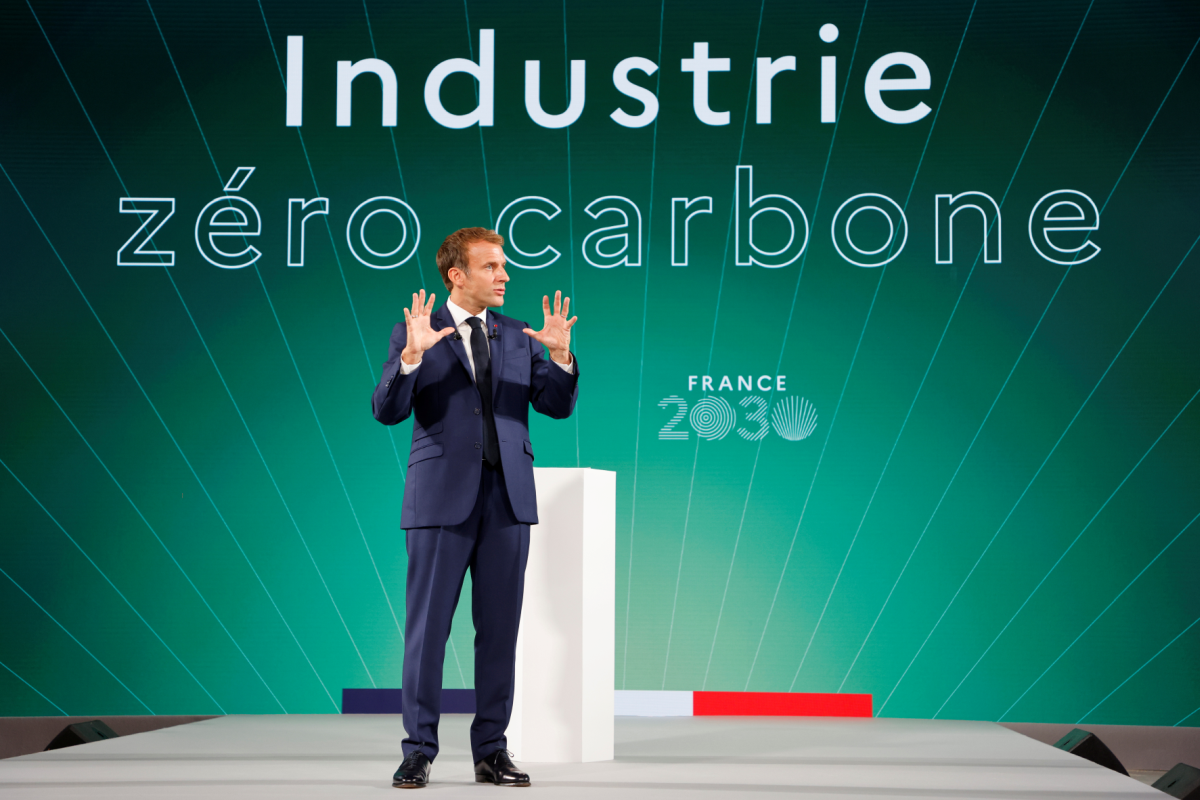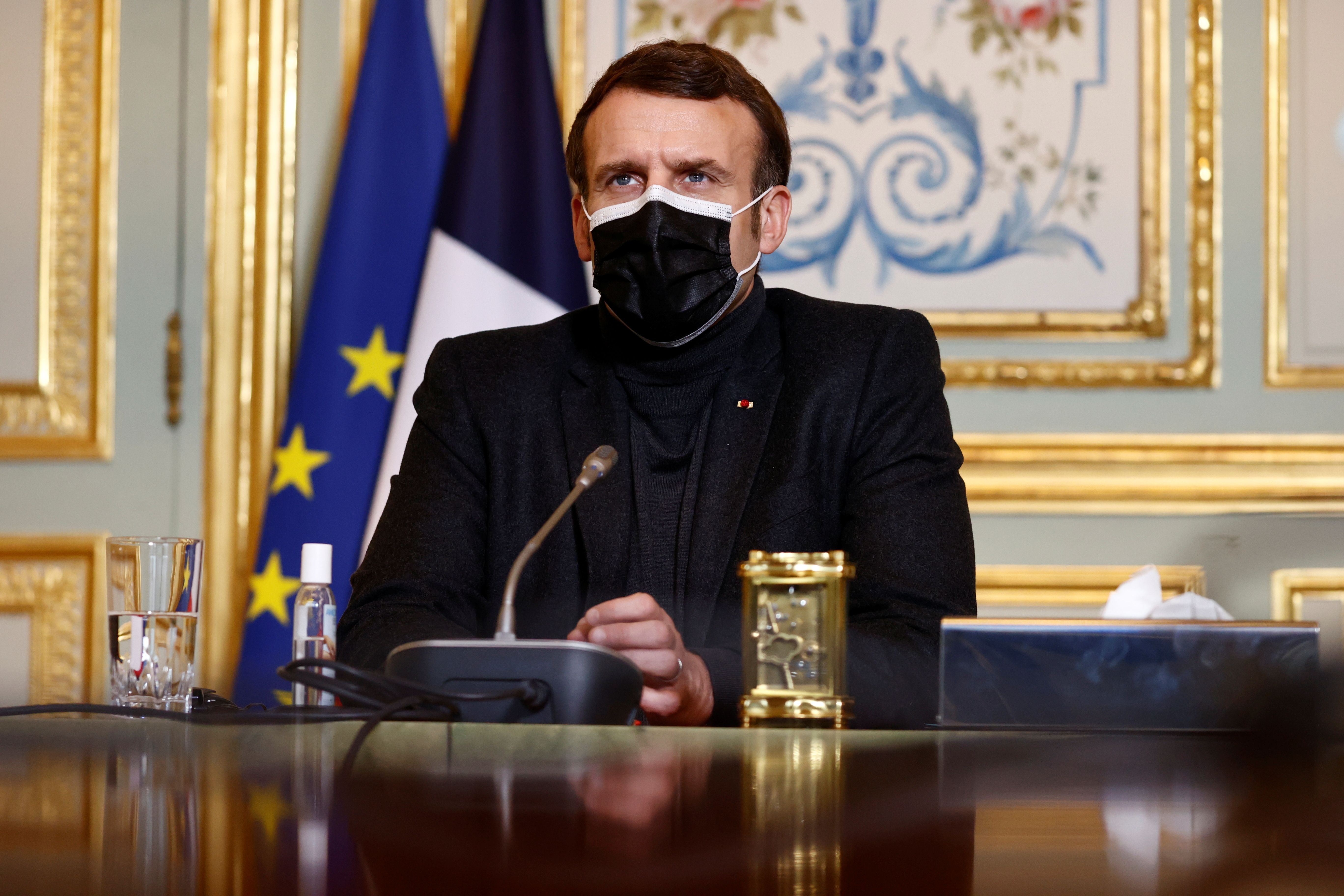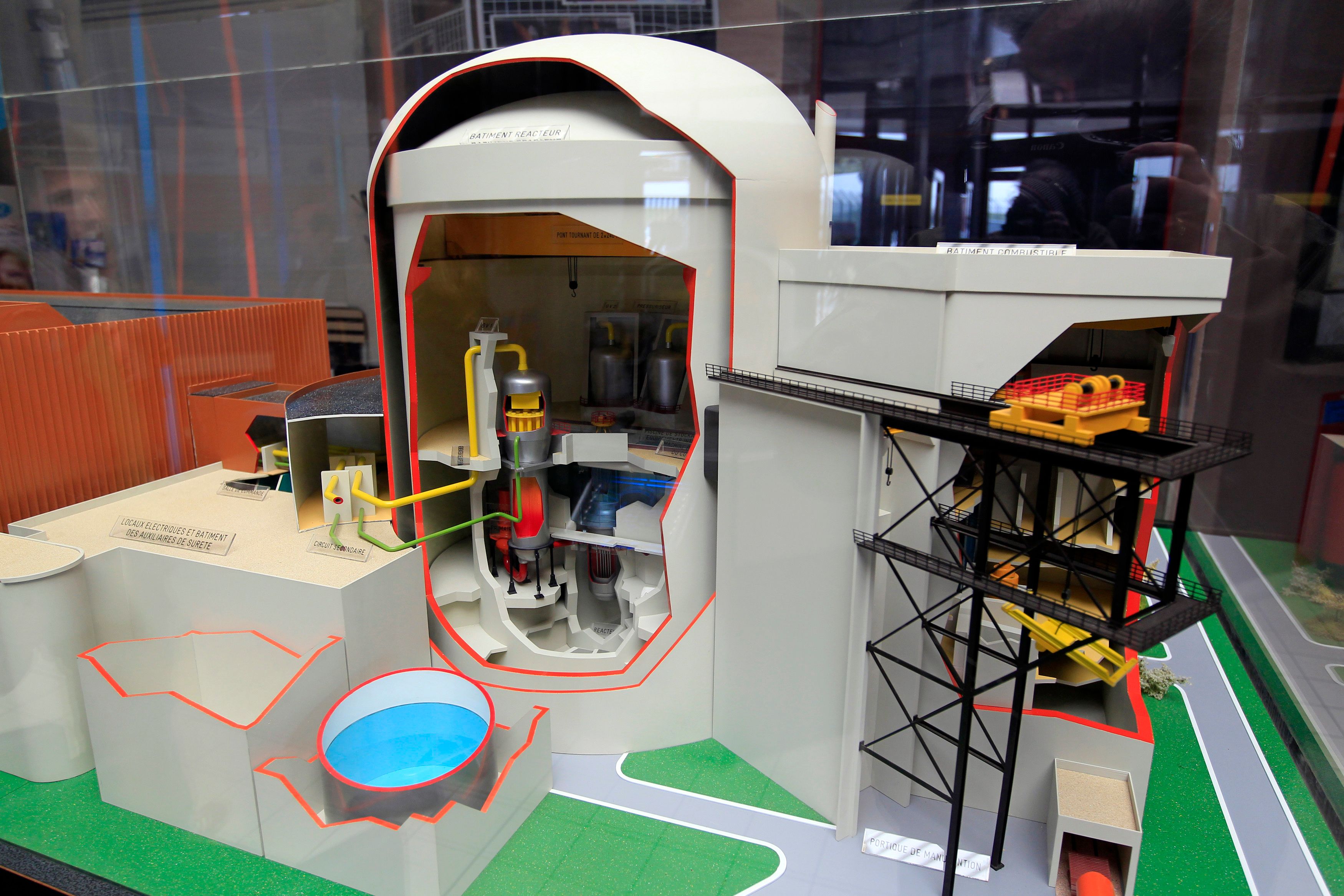Macron's Investment Plan: Innovations under the Tutelage of the State
 Photo: POOL/Reuters/Forum
Photo: POOL/Reuters/Forum
From the beginning of the COVID-19 pandemic, the French authorities intervened to help the economy and maintain citizens’ purchasing power. Currently, French companies have started to use funds from the National Recovery Plan “France Relance” approved by the European Commission (EC). Despite optimistic forecasts for economic growth in 2021 (6.25%), the French GDP will not return to 2019 levels until December 2021.
The authorities and some economists are also concerned that the aid measures applied in France and other EU countries will prove insufficient in view of the scale of the interventions by the U.S. and China. Macron also sees state aid in response to the pandemic as an opportunity to mobilise business to better adapt to the challenges of the energy transition. The presented new investment plan, “France 2030” is also a response to the opposition’s accusations that Macron’s policy is conducive to de-industrialisation and outsourcing. The French president’s initiative is part of the campaign ahead of the presidential elections scheduled for April 2022.
Macron’s New Plan
An important element of the “France 2030” plan is support for the energy transition. The state-owned company EDF is burdened with a multi-billion dollar debt and faces the need for costly replacement of some reactors at nuclear power plants. The decision on this investment—Macron announced that it would be made soon—is difficult for the government after it failed to reach an agreement with the EC on state aid to EDF and because of flaws in French-made European Pressure Reactor (EPR) technology. The failure of the EPR programme could be offset by the Small Modular Reactors (SMR) programme, which the “France 2030” plan is expected to back up with €1 billion. The subsidy is to allow French industry to make up for the delays in building a domestic SMR in relation to competitors (China, Russia, U.S.). The government also wants to invest €2 billion in obtaining hydrogen from zero-emission sources (two “gigafactories” or electrolysis plants), as well as €500 million for the further development of renewable energy sources (RES).
The development of technologies for obtaining hydrogen is linked to the future of ecological transport. In 2021, Alstom’s first hydrogen-powered trains were tested on French tracks. In the coming years, Airbus is to present a prototype hydrogen-powered regional aircraft. In addition, the European aviation giant is also researching an airplane powered by low-emission fuel (SAF) derived from biomass. Macron announced that zero-emission aircraft should be ready by 2030 and that the aviation industry will receive €2 billion for research in this area under the “France 2030” plan. At the same time, the president expressed his hope for cooperation with European partners. Another €2 billion is to support the production of green cars. The goal is to produce 2 million electric and hybrid vehicles by 2030.
The COVID-19 pandemic has highlighted the weaknesses of the French pharmaceutical industry, particularly the dependence on imported ingredients and lack of innovation. The “France 2030” plan is expected to support research into biological medicines, especially against cancer and chronic diseases. Macron also wants to improve the process for registering innovations and bring the production of basic substances back to France from abroad. The support for the pharmaceutical sector is to amount to €3 billion. Aid to the industry was deemed support of a healthy lifestyle, and the government also intends to allocate €2 billion to the ecological transformation of French agriculture and food industry.
Aid for the development of digital technologies is to benefit not only the economy but also strengthen French sovereignty. Macron’s plan, under which the IT industry is to receive €6 billion, aims to increase the domestic production of semiconductors and work on the next generation of chips. The president also expects that France, together with its partners from the EU, will seek to strengthen European independence from the U.S. in digital technologies. The grants from “France 2030” go hand in hand with aid under Macron’s plan (€1.8 billion) for AI, cybersecurity, and quantum computing, announced in January.
Challenges
Critics of the new Macron plan decry the funding as disproportionately low —€30 billion—in relation both to its duration of five years and the wide range of planned investments. Moreover, there is a risk that financial support alone will not be a sufficient stimulus for innovation. An example of the ineffectiveness of this form of state aid for business is the €57 billion 2017 Plan for the Support of Innovations, or the €100 billion “France Relance”, now being implemented, in which funds are seen “dissolving” into the economy without a significant increase in the competitiveness of French companies globally.
In some respects, “France 2030” lowers the bar of ambition previously expressed by Macron and his predecessors. This is especially true of the quest for independence from the U.S. digital giants (Google, Amazon, Facebook, Apple) and data-storage security. Macron openly admitted on 12 October that the timeframe for building a “sovereign cloud” was beyond the next five years. The so-called compromise is to be a “cloud of trust” in which sensitive data would be stored on servers located in France, but still based on Microsoft and Google technologies (France’s Thales signed an agreement with Google in relation to this concept in early October). The delay of the “sovereign cloud” will especially disappoint the scientific community, which criticises the government for insufficient funding of research, as well as by businesses for disregarding its cooperation with universities and research centres.
The presentation of “France 2030” outside the context of the French demands for closer economic integration in the EU is also noteworthy. France proposed that the EU recovery plan Next Generation EU be strengthened by an investment programme based in part on shared debt. In view of the controversy in the EU sparked by the idea of common debt, the ambitions of “France 2030” have been limited to the needs of the French economy. The electoral context is also important, prompting the French authorities to present the plan without engaging the EU in negotiations.
Conclusions and Prospects
The “France 2030” plan continues the interventionist tradition of relations between the state and business in France. Its advantage is the rational selection of the priorities of the French economy in the era of the energy transformation. However, its impact may be limited by both its modest financing and the imperfect model of cooperation between French business and scientific community. The experience of the state interventions so far shows that financing of the economy is insufficient without solving the problem of the low competitiveness of French companies. Additional budgetary resources may even discourage businesses from rationalising and modernising working methods.
In presenting his plan, Macron has entered into a polemic with some of his rivals, especially Marine Le Pen, Jean-Luc Mélenchon, and Xavier Bertrand, who accuse the president of continuing a policy of the deindustrialisation of France. Macron also uses it to distance himself from the identity and security issues that currently dominate the French debate. From an electoral point of view, the weakness of his plan is its focus on the macroeconomic aspect, with no clear link to the unemployment and purchasing power issues plaguing the French. The president must demonstrate the impact of the proposed solutions on increasing the standard of living.
The implementation of some of the tasks assumed by the “France 2030” plan will require enhanced cooperation with other EU countries. It should be expected that French companies will focus on cooperation with traditional partners (Germany, Spain, Italy, Benelux countries). From the point of view of the interests of the Polish economy, the plan may offer hope for broadening cooperation in the energy industry (batteries for electric cars, “green” hydrogen, and nuclear energy). It would also be desirable to cooperate more in the field of ICT security systems and the protection of digitally stored data.





